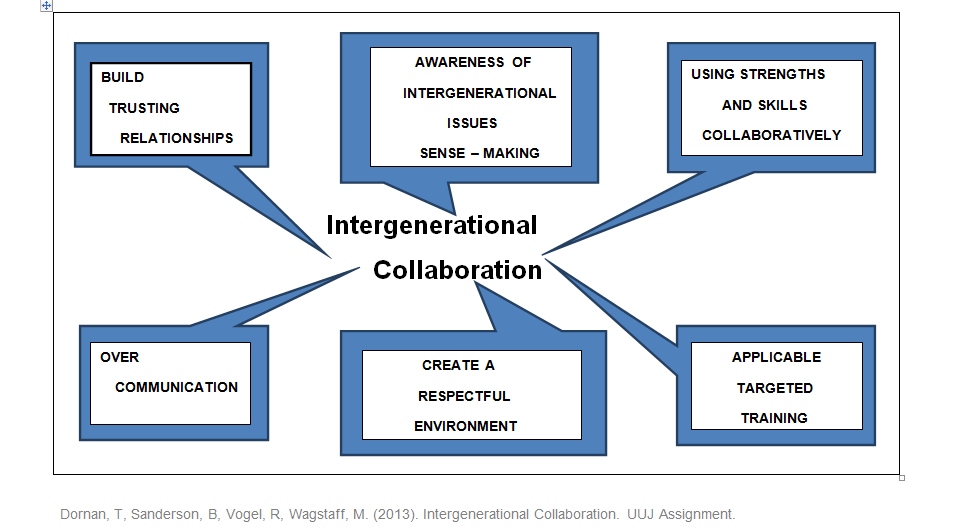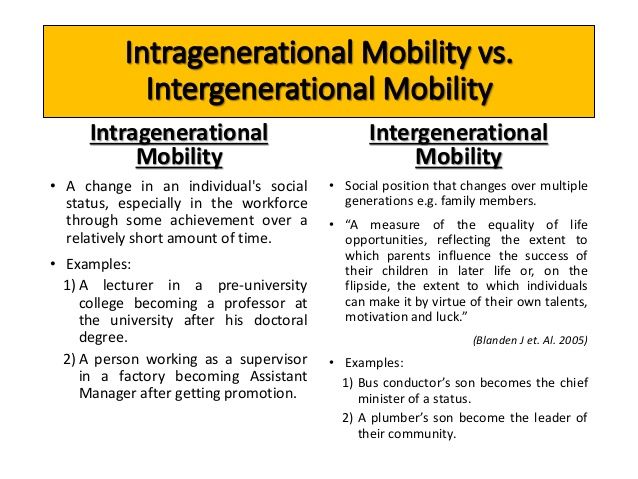Difference between Intergenerational and Intragenerational
Intergenerational and intragenerational are descriptive terms which refer to processes occurring in certain periods of time. They are usually involved in sociological and economic discussions. These terms are often associated with social mobility (movement in a social hierarchy system), equity (concept of fairness), and others. Specifically, intergenerational pertains to something which exist between generations while intragenerational exists between members of a single generation. The following discussions further look into such distinctions.

What is Intergenerational?
Intergenerational came from the Latin words “inter” which means “between” and “generare” which means “to beget”. It is an adjective for something which occurs between generations. For instance, intergenerational mobility is the change of social status from one generation to the next; just like John, a currently successful middleclass businessman, who was born in a family with a low socioeconomic status. The change between his parents’ and his own social status is intergenerational.
Other related terms include:
- Intergenerational conflict
This is a disagreement or clash (often involving prejudice) in between generations such as parents vs children or grandchildren vs grandparents.
- Intergenerational contract
This is a dependency between distinct age groups wherein a younger generation is expected to provide the same service which the older generation provided to their seniors.
- Intergenerational cycle of violence
This is a pattern of abuse which is passed on from a generation to the next.
- Intergenerational equity
This is a concept of fairness between the interaction of the youth and the elderly.
- Intergenerational ministry
This is a Christian ministry model which focuses on mixed-generation activities.
- Intergenerational policies
This is concerned with policies which seek to address the needs of the public across generations.
- Intergenerational struggle
This is an economic conflict characterized by a better pension benefit of the first generation as compared to the succeeding ones due to the government’s debt.
- Intergenerational shared sites
These are sites which cater to both young and old; they are avenues for activities among different age groups.

What is Intragenerational?
Intragenerational came from the Latin words “intra” which means “inside” and “generare” which means “to beget”. It is an adjective which pertains to an occurrence within a generation. For instance, in intragenerational mobility, the change of social status occurs within one’s lifespan. In the aforementioned example, Ben’s shift of socio-economic status from his impoverished youth to his well-off adulthood is intragenerational.
Other related terms include:
- Intragenerational conflict
This is a disagreement or clash (often involving prejudice) within generations such as among children or among the elderly.
- Intragenerational equity
This is concerned with the justice in between individuals belonging to a generation.
Difference between Intergenerational and Intragenerational
Definition
Intergenerational pertains to something which exist between generations while intragenerational exists between members of a single generation.
Etymology
Intergenerational came from the Latin words “inter” which means “between” and “generare” which means “to beget”. In comparison, intragenerational came from the Latin words “intra” which means “inside” and “generare” which means “to beget”.
Social Mobility
Intergenerational mobility is the change of social status from one generation to the next. For instance, someone with a “rags to riches” life story experiences this social mobility when his parents’ status is compared to his current status. On the other hand, intragenerational mobility is the change of social status which occurs within one’s lifespan. For instance, this occurs when the shift of a person’s socio-economic status is compared regarding his childhood and adulthood.
Intergenerational conflict
Intergenerational conflict is a disagreement or clash (often involving prejudice) in between generations such as parents vs children or grandchildren vs grandparents. For instance, the youth may discriminate the elderly during social events. On the contrary,
intragenerational conflict occurs within generations such as among children or among the elderly. For example, a group of teenagers may bully other “uncool” kids in campus.
Intergenerational equity
Intergenerational equity is a concept of fairness between the interaction of the youth and the elderly while intragenerational equity is concerned with the justice in between 0individuals belonging to a generation.
Frequency
There are more terms in connection with intergenerational such as intergenerational mobility, intergenerational conflict, intergenerational contract, intergenerational cycle of violence, intergenerational equity, intergenerational ministry, intergenerational policies, intergenerational struggles, and intergenerational shared sites. Intragenerational is associated with less terms such as intragenerational mobility, intragenerational equity, and intragenerational conflict.
Differences
There are more differences in connection with intergenerational situations as compared with intragenerational setups. Obviously, more dissimilarities occur in between generations due to the age gap. This is in connection with more terms associated with intergenerational.
Intergenerational vs Intragenerational

Summary
- Intergenerational and intragenerational are descriptive terms which refer to processes occurring in certain periods of time.
- The terms in relation to intergenerational include intergenerational mobility, intergenerational conflict, intergenerational contract, intergenerational cycle of violence, intergenerational equity, intergenerational ministry, intergenerational policies, intergenerational struggles, and intergenerational shared sites.
- The terms in relation to intragenerational include intragenerational mobility, intragenerational equity, and intragenerational conflict.
- Intergenerational pertains to something which exist between generations while intragenerational exists between members of a single generation.
- “Inter” means “between” and “intra” means “inside”.
- Comparing socio-economic social status from one generation to the next is intergenerational social mobility while comparing socio-economic status within one’s lifetime is intragenerational social mobility.
- Intergenerational conflict and equity involve the youth in contradiction with the elderly while intragenerational conflict and equity are isolated within a generation.
- There are more differences and terms related with intergenerational than intragenerational.
- Difference Between Hematoma and Melanoma - February 9, 2023
- Difference Between Bruising and Necrosis - February 8, 2023
- Difference Between Brain Hematoma and Brain Hemorrhage - February 8, 2023
Search DifferenceBetween.net :
2 Comments
Leave a Response
References :
[0]Image credit: https://commons.wikimedia.org/wiki/File:Framework_for_Intergenerational_Collaboration.jpg
[1]Image credit: https://i.pinimg.com/736x/9d/03/cf/9d03cf24552e3707ce4df5cc385285e2.jpg
[2]InforMEA. “Intragenerational Equity”. Access Information on Multilateral Environmental Agreements. https://www.informea.org/en/terms/intragenerational-equity (accessed March 21, 2020).
[3]Schad, Mareike. Intergenerational income mobility and redistributive policy. Wiesbaden, Germany: Springer Gabler, 2016. Print.
[4]Your Society. “Intragenerational Mobility”. Economy. https://www.ecnmy.org/learn/your-society/status-in-society/intragenerational-mobility/ (accessed March 20, 2020).

I will be greatful to you if i received all these notifications for my updation.
Please provide me all notification